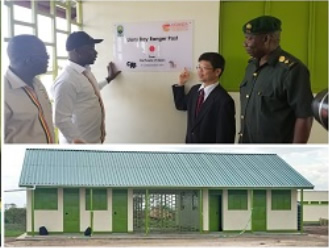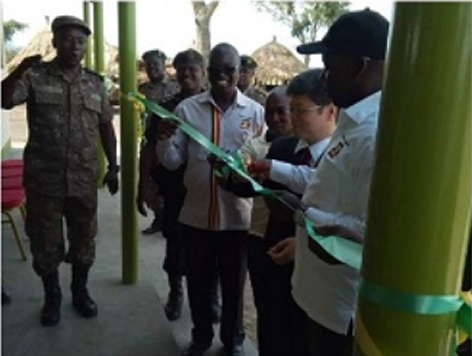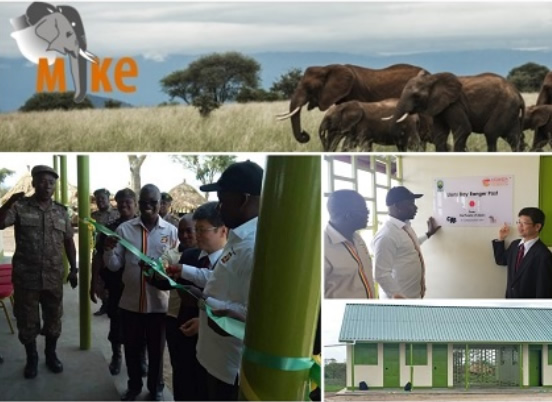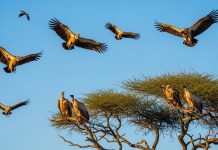
The government of Japan has built and handed over to Uganda a Strategic Anti-Poaching Outpost for Elephants. The anti-poaching facility was completed and handed over to Uganda in April at the Queen Elizabeth National Park in Uganda. The project was in line with the Convention on International Trade in Endangered Species of Wild Fauna and Flora (CITES).
The Deputy Head of Mission, Embassy of Japan in Uganda, Mr. Mizumoto Horii launched the Lions Bay ranger post.
The new outpost is part of Uganda Wildlife Authority (UWA)’s larger Recovery of Queen Elizabeth National Park programme and provide a base for field rangers conducting operations in important wildlife and tourism sector, and will significantly strengthen UWA’s capacity to address current and emerging threats impacting this important site of the CITES Monitoring the Illegal Killing of Elephants (MIKE) Programme. The project was led on-the-ground on behalf of CITES by the Uganda Conservation Foundation in close collaboration with UWA.

Queen Elizabeth National Park provides protection for 95 species of mammal, including buffaloes, hippopotami, crocodiles, elephants, leopards, lions and chimpanzees, and over 620 species of birds. The park forms part of an extensive transboundary ecosystem that covers forest reserves and the adjacent Virunga National Park World Heritage Site, in the Democratic Republic of Congo.
The elephant population in the Queen Elizabeth National Park was recently reported by UWA as young and healthy, numbering over 3000 individuals, which is by far the largest elephant population in Uganda but still below levels, the park can sustain. The elephant population has been increasing steadily over the last twenty years, since being reduced by poaching to below 400 elephants in 1988.
“The illegal wildlife trade is an urgent global issue. Japan is deeply committed to the cause of protecting elephants and their natural habitat. Japan places great importance on supporting elephant range states in the fight against elephant poaching,” said Deputy Head of Mission, Embassy of Japan in Uganda, Mr. Mizumoto Horii.
He added that, “Japan continues to make great efforts in implementing the trade control of ivory under CITES and working together with our partners to tackle the problem of elephant poaching and the illegal elephant trade.”
The Honourable Minister Godfrey Kiwanda highlighted that “Having a well-built, dry and clean facility, with clean water, solar power lighting and an ablution block, makes rangers feel respected and motivated.”
“The recovery of wildlife and tourism in Queen Elizabeth National Park depends on the motivation of our frontline staff and tangible support such as this. This support also provides a solid foundation for growing tourism in Uganda which is already recognised as the countries strongest contributor to the regional and national regional economy,” said Uganda Wildlife Authority, Executive Director, Sam Mwandha.

“The funding provided by the Government of Japan for the development of essential infrastructure needed to support management operations is invaluable. The investment and attention given to the area has had a significant impact on the overall morale of the staff based in the Lions Bay and Katore Sectors and enhanced their capacity to effectively protect the area,” added Thea Carroll, CITES-MIKE Programme Coordinator.
The Government of Japan contributed 55,000 US$ to CITES’s Monitoring the Illegal Killing of Elephants (MIKE) Programme.
















